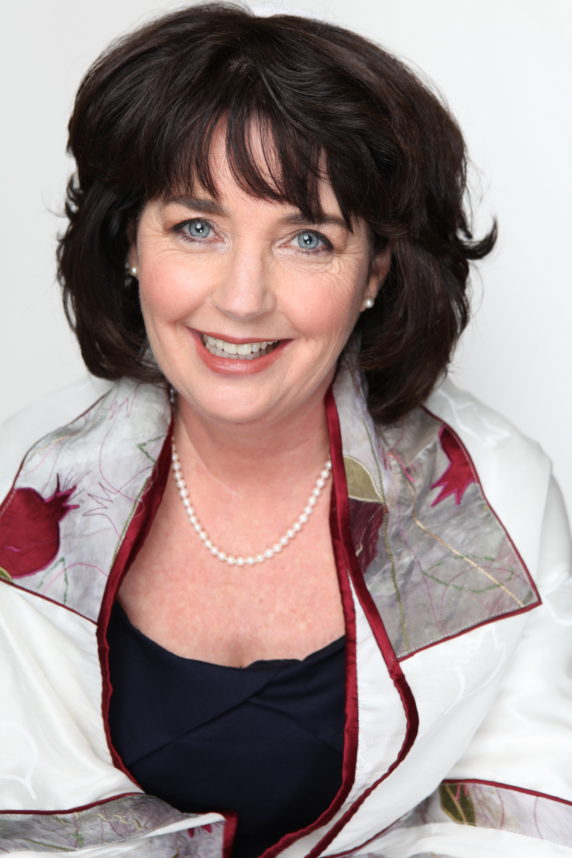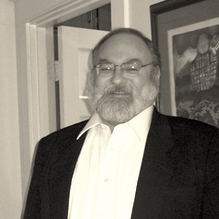 hospital waiting area
hospital waiting area I spend my days as a hospital rabbi-chaplain sitting with patients and families who are dealing with the unimaginable: an 18 year old college student-athlete and cancer patient who believes that she has done something to deserve her illness, a 33 year old whose wife died hours after giving birth to their first child, an 80-something member of a prominent show business family who attempted suicide because, for her, life has no meaning now that she is no longer active in the world of the arts.
One of the benefits of my professional life is that I have many opportunities to acknowledge and affirm that life is not fair. I have learned to see life as a mashup of the most wonderful and beautiful and the most terrifying and horrific, as the exquisitely heartbreaking combination of love and pain. I’ve come to see every ordinary and mundane day as, in fact, an extraordinary and wonderful day.
I was having one of those ordinary, wonderful days three days ago when I went to dinner with a friend as part of my birthday festivities. We had just placed our order when I excused myself to pick up a voicemail from my husband. His message was that he had received a call from a hospital emergency room telling him that one of our children was in critical condition and might not survive the night.
During our two hour drive to the hospital, we continued to get calls that were both updates and urgings to hurry. Beginning that evening, our family became—again—one of the families who sit in Critical Care units, waiting rooms, conference rooms and cafeterias, receiving medical updates, sharing them with those who are not physically present, waiting, hoping, praying. With a loved one in a medically induced coma and on life support, we, too, are a family signing consent forms for procedures that may or may not result in positive outcomes. We, too, are a family precariously balanced between, hope for a positive outcome and statistical medical realities.
Every morning, I give thanks that our loved one has survived the night. I do the best that I can to convey my deep gratitude for all of the help that he and we have received: the bystanders who jumped into action, began CPR and called 911; the EMTs who fought to keep his heart beating; the doctors and nurses and respiratory therapists who have kept him alive and are caring for him; the widening circle of those who praying for his healing. Most of all, we are grateful to the Creator who gives life, knowing both that it is indeed a miracle that our loved one is alive at this moment and that should he survive, his life and ours may be very different than they were or what we imagined they would be.
In these weeks of the Shabbatot of Consolation, in our acute awareness of the uncertainly of his prognosis, we find consolation in knowing that although outcomes are far from certain, we feel held by the Compassionate One. We find comfort in being together, in our ability to openly express our hopes and fears with one another and in telling our loved one that we are here and that we will continue to be. We chant the Shehekiyanu as he survives each crisis. Holding tightly to the knowledge that life offers no guarantees, in this time of fear and hope and uncertainty, we are deeply thankful for the precious gift of life and for the critical care of so many.
Rabbi Janet Madden earned her PhD in literature from The National Univer-sity of Ireland. A writer and ritualist, she is Rabbi of Providence Saint John’s Health Center (Santa Monica, CA) and Visiting Rabbi of The Oahu Jewish Ohana (Honolulu).

___________
Gamliel Café
Gamliel Students are invited to a free informal online session, held monthly. On the third (3rd) THURSDAY of each month, different person(s) will offer a short teaching or share some thoughts on a topic of interest to them, and those who are online will have a chance to respond, share their own stories and information, and build our Gamliel Institute community connections. This initiative is being headed up by Rena Boroditsky and Rick Light. You should receive email reminders monthly. The next scheduled session of the Gamliel Café is September 20th. More details will be sent out soon.
If you are interested in teaching a session, you can contact us at rboroditsky@jewisgh-funerals.org, rlight@jewish-funerals.org, or info@jewish-funerals.org.
____________________
Taste of Gamliel Series
The 2018 Taste of Gamliel series has concluded, but it is not too late if you want to access the recordings. You can Register for the 2018 series, Your’re Gonna Miss Me When I’m Gone: Jewish Practices of Remembrance, or any of the series from prior years. There are usually five sessions in a series, and each session is approximately 90 minutes.
Registration for Taste of Gamliel is mandatory to access the sessions. Registration $36 for each series to help us defray the out of pocket costs.
Those registered will be sent the information on how to connect to the sessions. To register, click here: register.
_______________
Gamliel Continuing Education Courses
Gamliel students should be on the lookout for information on a series of Gamliel Continuing Education Courses, advanced sessions focusing in on different topics. These will usually be in groups of three ninety minute sessions (three consecutive Wednesdays) offered roughly twice yearly, with different topics addressed in each series. The goal is to look at these topics in more depth than possible during the core courses. The first course took place in Fall 2017, focusing on Psalms, and the second was on The World to Come and the Zohar.
The next course will be November 28th, December 5th, and December 12th. We will continue to look at death as seen in the Zohar, taught by Beth Huppin.
Registration is required, and there will be a tuition charge of $72 for each three session series. Contact us for information, by email info@jewish-funerals.org, or call 410-733-3700, or simply register online at www.jewish-funerals.org/gamreg/.
_____________________
Gamliel Course
The next course in the cycle of core courses offered by the Gamliel Institute will be Course 4 – Nechama/Comfort. It will be offered online during the Fall from October 9th to December 25th on Tuesday evenings, for 90 minutes each week for 12 weeks. The classes will begin at 5 pm PST/8 pm EST. Primary instructors will be Dan Fendel and Edna Stewart, with guest instructors.
Registration is open – click here.
The course planned for Winter 2019 is Course 2 – Chevrah Kadisha: Taharah & Shmirah. Plan ahead!
_____________________
DONATIONS
Donations are always needed and most welcome to support the work of Kavod v’Nichum and the Gamliel Institute, helping us to bring you the annual conference, offer community trainings, provide scholarships to students, refurbish and update course materials, expand our teaching, support programs such as Taste of Gamliel, the Gamliel Café, and the Gamliel Continuing Education courses, provide and add to online resources, encourage and support communities in establishing, training, and improving their Chevrah Kadisha, and assist with many other programs and activities. There is a matching donation program in progress so your dollars go further. See the website for details.
You can donate online at http://jewish-funerals.org/gamliel-institute-financial-support or by snail mail to either:
Kavod v’Nichum, or to The Gamliel Institute,
c/o David Zinner, Executive Director, Kavod v’Nichum,
8112 Sea Water Path,
Columbia, MD 21045.
Kavod v’Nichum and the Gamliel Institute] are recognized and registered 501(c)(3) organization, and donations may be tax-deductible to the full extent provided by law. Call 410-733-3700 if you have any questions or want to know more about supporting Kavod v’Nichum or the Gamliel Institute.
You can also become a member (Individual or Group) of Kavod v’Nichum to help support our work. Click here (http://www.jewish-funerals.org/money/).
___________
SUBMISSIONS WELCOME
Please note: this blog depends on you for content. Without you it cannot publish new material. If you have an idea for an entry you would like to submit to this blog, please be in touch. Email J.blair@jewish-funerals.org. We are always interested in original unpublished materials that would be of interest to our readers, relating to the broad topics surrounding the continuum of Jewish preparation, planning, rituals, rites, customs, practices, activities, and celebrations approaching the end of life, at the time of death, during the funeral, in the grief and mourning process, and in comforting those dying and those mourning, as well as the actions and work of those who address those needs, including those serving in Bikkur Cholim, Caring Committees, the Chevrah Kadisha, as Shomrim, funeral providers, in funeral homes and mortuaries, and operators and maintainers of cemeteries.
_____________________






















 More news and opinions than at a Shabbat dinner, right in your inbox.
More news and opinions than at a Shabbat dinner, right in your inbox.